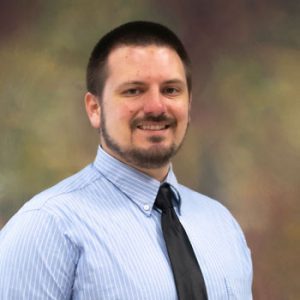Skills and knowledge to provide quality high-value care
Become fully prepared for the practice of internal medicine and for fellowship training in an internal medicine subspecialty discipline of your choosing.

ABOUT THE
PROGRAM
Our three year program at Ascension Sacred Heart is designed to give new physicians the comprehensive skills and knowledge needed to provide quality high-value care to the community.
Resident physicians will become proficient in the art of practicing medicine under the guidance and direction of a team of highly-qualified internists and sub-specialists with years of experience in hospital and ambulatory medicine in both academic and independent settings.
The University of Florida College of Medicine Internal Medicine Residency Program at Ascension Sacred Heart has a deep commitment to serving all patients, with special attention to the medically underserved and vulnerable of Northwest Florida and South Alabama.
We pride ourselves for having the most approachable staff and faculty, and we encourage you to contact us for any questions you may have.
The mission of the UF-Pensacola Internal Medicine Residency program is to train residents to be compassionate, dedicated, and well-rounded internists by balancing academic rigor and clinical diversity with a supportive and collegial learning environment. Our history of camaraderie, teamwork, and clinical innovation empowers residents to improve the health of the culturally and socioeconomically diverse patient population in the Northwest Florida and Southeast Alabama areas. We remain committed to providing an individualized training environment for each resident that caters to career interests, balances clinical autonomy with structured learning, and emphasizes community care as well as personal-professional well-being.
Program Aims
- Train future physicians to become lifelong learners and future leaders in clinical practice, education, and/or administration.
- Provide an intensive educational environment with a diversity of clinical settings to promote progressive responsibility, graduated autonomy, and team-based collaborative care.
- Offer a versatile training program.
- Educate residents in the principles of high value care, health care disparities, and population health management.
- Engage residents in quality improvement/patient safety initiatives and scholarly research activity.
- Maintain a culture of wellness and esprit de corps where resident support, camaraderie, and mentorship are top priority.
Diversity and Inclusion
The University of Florida College of Medicine is committed to diversity, inclusion and health equity through the efforts of actively finding, developing and including the best talent to support our vision of being “a premier institution focused on promoting health and alleviating human suffering through exceptional education, discovery, innovation and patient-centered health care of the highest quality.”
“One of the things that I am most happy about in working with the UF Internal Medicine Program is the welcoming atmosphere when it comes to diversity. We know how much more enriching our learning environment is when our experiences include points of views and ideas from different cultures. The multi-cultural makeup of our Internal Medicine Program is an example of such, and we pride ourselves in our rich diversity. Being myself of a Hispanic background, this atmosphere of inclusion has contributed enormously to my growth both as a physician and as a person. It makes me proud that our residents are part of this experience.”
–Dr Maria Carmona, MD
LIFE AS A RESIDENT
Our program size allows close interaction between the faculty and residents, providing a solid support structure throughout your residency. This program will fully prepare you to begin your career in the practice of internal medicine and for fellowship training in an internal medicine subspecialty discipline of your choosing.
1st Year
The objective for the first-year resident is to establish a strong clinical foundation and good medical practice in the core aspects of internal medicine. These core aspects will include internal medicine, pulmonology, cardiology and adult critical care. Call nights will be under the direction of the hospitalist on call. In addition, all residents will be expected to be a part of the CODE team.
First-year Residents will have the support of faculty and PGY 2 and 3 residents. The environment is conducive to learning and building a strong team foundation. In addition, all first-year residents are encouraged to have a research topic confirmed by the end of Year 1 in anticipation of the research presentation for PGY-3. Throughout all program years, residents will have a specified mentor physician who will actively assist with each project.
2nd Year
During the second year, residents’ studies will expand into further subspecialties in medicine. Continued opportunities to participate in and perform procedures will also be available. In addition, second-year residents will have a more supervisory role for the additional students on service.
Residents are encouraged at all levels, but especially by PGY-2, to participate in hospital-based committees and expand their presence throughout the hospital. In this year, research data collection should begin.
3rd Year
Third-year residents will have additional electives to allow refinement of skills and further exploration of subspecialties that may interest them. Third-year residents will be required to present their research posters and projects at the annual Research Night event. Top winners will receive an award.
Residency
Curriculum
A primary goal of our program is for the resident to assume increasing responsibility for his or her own education. In this respect, our curriculum offers a balanced program of experiences at each level of training.
Our program is organized into 12 four-week rotations or “blocks.” Below, please find the information regarding each year’s required blocks, along with information on the rotations and elective possibilities.
First Year (PGY-1) Resident
- General Medicine: 5 blocks
- Intensive Care Unit: 1 block
- Cardiology: 1 block
- Pulmonology: 1 block
- Gastroenterology: 1 block
- OB/GYN: 1 block
- Elective: 2 blocks
Second Year (PGY-2) Resident
- General Medicine: 5 blocks
- Intensive Care Unit: 1 block
- Infectious Disease: 1 block
- Emergency Medicine: 1 block
- Hematology/Oncology: 1 block
- Elective: 3 blocks
Third Year (PGY-3) Resident
- General Medicine: 4 blocks
- Inpatient Geriatrics: 1 block
- Neurology: 1 block
- Rheumatology: 1 block
- Endocrinology: 1 block
- Nephrology: 1 block
- Elective: 3 blocks
4th YEAR MEDICAL STUDENTS
If you are a fourth year medical student looking to complete a clinical rotation experience with the University of Florida Internal Medicine Residency Program at Ascension Sacred Heart, please visit our Medical Students page for more information.
Benefits
The University of Florida Internal Medicine Residency Program provides a very competitive benefits package, annual CME allowance, and many tools, resources and support.
Annual Salary
First Year – $63,978
Second Year – $66,137
Third Year – $68,420
Insurance Benefits
- Major Medical Insurance
- Disability Insurance
- Life Insurance
- Dental Insurance
- Vision Insurance
- Professional Liability Insurance
LEAVE
- Vacation
- Sick Leave
- Continuing Medical Education
Other Benefits
- Meal stipend is provided for meals while at work and/or on call
- State of Florida licensure application process and fees
- Lab coats, scrubs and business cards
- Varying membership and/or examination fees
Resident Educational Allowance
Residents are given a $600/year allowance, rolling over three years, which may be used for educational purposes including conference expenses, textbooks, journals or research-related expenses.

EDUCATIONAL GOALS
The primary program goal of the Internal Medicine Residency Program at Ascension Sacred Heart is to achieve and maintain excellence in the education and training of Internists by assuring an organized educational experience with increasing responsibilities over three years in a setting where mutual respect between learners and teachers is fostered, where there is a diverse patient population, and where the teaching staff is enthusiastic and committed to teaching. This experience is designed to promote the acquisition of knowledge, skills and attitudes needed to practice Internal Medicine, to develop the progressive autonomy of Internists, and to provide them with appropriate levels of supervision.
The program’s objectives are defined under the ACGME six core competencies:
- Patient Care
- Professionalism
- Medical Knowledge
- Practice Based Learning and Improvement
- Interpersonal and Communication Skills
- Systems Based Practice
Objectives
- Achieve competency in patient care that is compassionate, appropriate, and effective for the treatment of health problems and the promotion of health. Internists must be able to provide family centered patient care that is developmentally and age appropriate, compassionate, and effective for the treatment of health problems and the promotion of health.
- Achieve competency in medical knowledge and the application of this knowledge in patient care. Internists must demonstrate knowledge about established and evolving biomedical, clinical, epidemiological and social-behavioral science, and demonstrate the ability to apply this knowledge to patient care.
- Achieve competency in interpersonal and communication skills which results in effective information exchange when working with patients, their families, and other health professionals.
- Achieve competency in practice-based learning and improvement. Internists must demonstrate competence in the use of scientific methods and evidence to investigate, evaluate, and improve their patient care practices. The goal of this being to create an inquisitive, life-long learner, knowledgeable in the processing of medical information which can be utilized in care of patients now and in the future.
- Achieve competency in professionalism as manifested through a commitment to carrying out professional responsibilities, adherence to ethical principles, and sensitivity to a diverse patient population.
- Achieve competency in systems-based practice. This includes developing a working knowledge and comfort in the role of internal medicine as advocate for patient health related issues.
program coordinator

Adam Peake
Adam.Peake@ascension.org
850-416-1186
